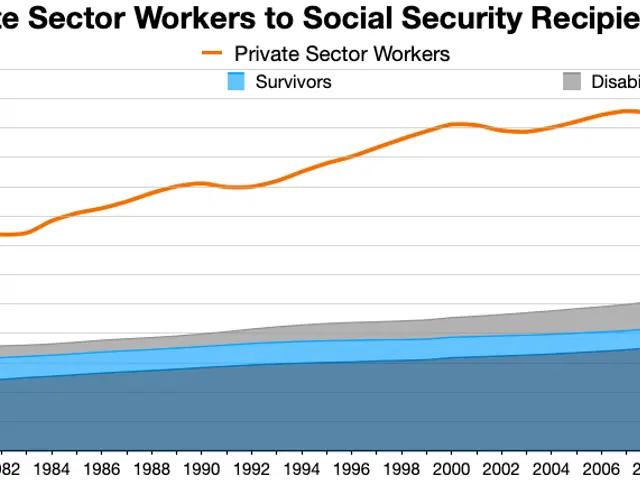Imminent Heatwave Sweeps Through Europe, Predicted Highs Reach a Severe 44°C
Europe Faces Record-Breaking Heatwaves and Wildfires Amid Climate Change
Europe is currently grappling with a severe heatwave and wildfire crisis, with temperatures soaring to record-breaking levels and wildfire activity at an all-time high. The ongoing situation in 2025 reflects the intensified effects of climate change, as extreme heat and wildfire activity continue to escalate.
In the summer of 2025, Europe witnessed multiple intense heatwaves, causing record-high temperatures. Some areas in Spain and Portugal reached up to 46°C, while Turkey saw temperatures as high as 50.5°C. These heatwaves were driven by persistent 'heat domes' – pressure systems that trap hot air.
These heatwaves have been lethal, particularly for older adults. During the June 2025 heatwave alone, an estimated 1,500 heat-related deaths occurred in 12 major European cities, with 65% of these deaths attributed to fossil-fuel-driven climate change.
The heatwaves have also fueled Europe’s worst wildfire season on record. As of August 2025, over 439,568 hectares have burned in EU countries, more than double the 19-year average. Spain is battling 20 major wildfires amid ongoing hot, dry conditions. Wildfires have devastated large parts of southern Europe, including Spain, Portugal, Greece, the Balkans, France, and Italy, with fire bans and evacuations implemented in many regions.
Heatwaves in Europe have become much more frequent and intense due to human-caused climate change. For example, London can now expect extreme heatwaves roughly every 6 years instead of every 60 years. Future climate models anticipate that such extreme heat events will not only become more frequent but also more severe, putting public health, infrastructure, ecosystems, and human security at increased risk.
The combination of prolonged droughts and rising temperatures creates ideal conditions for wildfires to ignite and spread rapidly, so wildfire seasons are expected to worsen further under ongoing warming trends.
The heatwave moving across Europe is predicted to raise temperatures in northern France, England, the Benelux, and central and eastern Europe by 10 to 15 degrees Celsius above average. Spain and Portugal may have temperatures of 43-44°C by Tuesday. By Wednesday and Thursday, temperatures in the low to mid-30s are predicted to spread into Germany and western Poland.
The severity of the heatwave is indicated by Talavera de la Reina in Spain recording an astounding 42.7°C (108.9°F) last Thursday, 18°C more than the local August normal. The increased temperatures in eastern Canada raise concerns about water scarcity and the potential for new fires.
The heatwave has already exacerbated conditions that make wildfires in arid environments more likely in southern France. Since August 5, a destructive fire in Aude, Occitanie, has grown to the size of Paris, making it the biggest wildfire in France in 75 years.
Scientific consensus and recent data strongly suggest that these trends will intensify in coming decades unless greenhouse gas emissions are dramatically reduced. Sarah Tancredi, an experienced journalist and news reporter specializing in environmental and climate crisis issues, is committed to informing the public and promoting sustainable solutions to environmental challenges.
The drought in Europe has worsened, affecting almost 60 million people, mostly in western areas. In addition, the drought has now extended to eastern Canada, causing below-normal rainfall and temperatures that are 10 to 15 degrees Celsius higher than usual. There have been 13 injuries, including 11 firefighters and one fatality, due to the wildfires.
Despite these challenges, efforts are being made to combat the effects of climate change. The Bharat Forecast System has boosted extreme rainfall prediction accuracy by 30%. However, it is crucial that more action is taken to reduce greenhouse gas emissions and mitigate the impact of climate change on Europe and the world.
Read also:
- Germany's three-month tenure under Merz's administration feels significantly extended
- United Nations Human Rights Evaluation, Session 45: United Kingdom's Statement Regarding Mauritius' Human Rights Record
- Hurricane-potential storm Erin forms, poised to become the first hurricane in the Atlantic Ocean this year.
- Amidst India's escalating climate crisis, transgender individuals continue to persevere.








